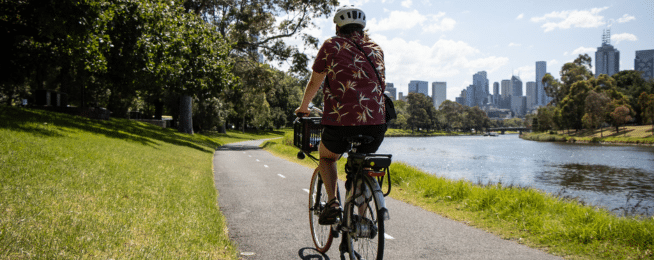A new study has further cemented the role of exercise in reducing cancer risk, by examining the associations between a broad range of cancer types and regular physical activity.
The study, led by the Cancer Council, builds on earlier research published in 2015 linking physical inactivity to three cancer types: colon, endometrial and post-menopausal breast cancer, which make up 1.6% of cancers in Australia.
Since that time, evidence has emerged globally linking physical inactivity to a broader range of cancer types.
The latest study offers a perspective on this in the Australian context, by drawing on data from the 2004-2005 National Health Survey to estimate minutes of physical activity per week for our population.
This was paired with cancer incidence data from the Australian Institute of Health and Welfare with a 10-year latency period, assuming the effects of physical inactivity from 2004-05 will affect cancer risk in 2015.
According to the study, 6361 of the cancers observed in 2015 were attributed to physical inactivity, representing 4.8% of all cancers and a threefold increase on the previous estimate.
The research ties physical inactivity to a wider range of cancer types including breast, colon, bladder, endometrial, kidney, oesophageal adenocarcinoma, gastric, non-Hodgkin lymphoma, head and neck, myeloma, myeloid leukaemia, liver, and gallbladder.
More than 2500 of the cancers observed in 2015 (1.9%) could have been prevented if Australian adults increased time spent exercising by around 40 minutes a week a decade earlier, according to the team.
“We now know being physically active reduces the risk of 13 types of cancer,” says Associate Professor Brigid Lynch, senior author of the paper.
"This new research highlights the number of individual cancer diagnoses that could have been prevented if Australians were better supported to integrate regular physical activity into their day.”
Many studies have linked inactive lifestyles to increased cancer risk, including a 2020 paper showing that 30 minutes on your bike can reduce the risk by 31% and a 2023 study that revealed exercise can suppress cancer growth even in its advanced stages.
The new research strengthens the case for making physical activity a key pillar of cancer prevention strategies in Australia.
“Australia is a nation proud of its health system, yet we don’t have a physical activity plan or coordinated national physical activity strategy,” says Ainslie Sartori, Deputy Chair of Cancer Council’s Nutrition, Alcohol and Physical Activity Committee.
“Combined with changes in food supply, eating behaviours, a rise in convenience and ultra-processed foods, we are living in environments that do not promote healthy lifestyles.”
“We want to ensure there are systems and environments in place for all Australians to develop strong physical activity habits that they can carry on, reducing their risk of developing cancer later in life.”
The research was published in the Journal of Science and Medicine in Sport.
Or become our friend and subscribe to receive our fortnightly newsletter.


